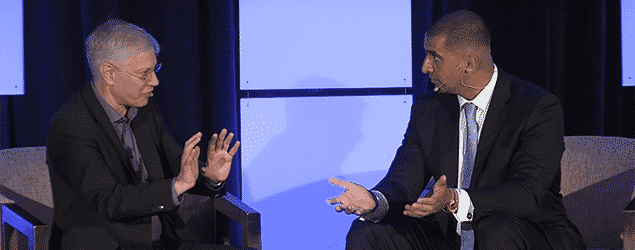ARI Presents the Summer Reading List of 2016

Isn’t summer the perfect time to read a good book? We think so. That is why we at ARI have compiled a summer reading list with a selection of great books covering today’s important issues from a distinctly Objectivist perspective. These books address topics such as the inequality debate, the threat from Islamic totalitarianism, the state of American education and other significant issues. For those who want to learn more about Ayn Rand’s philosophy, we’ve also added some books dealing with various aspects of Objectivism. Our summer reading list offers something for everyone, and we hope it will make your summer even more enjoyable.
- Equal Is Unfair: America’s Misguided Fight Against Income Inequality by Don Watkins and Yaron Brook. In Equal Is Unfair, Don Watkins and Yaron Brook reveal that almost everything we’ve been taught about inequality is dead wrong. It’s not economic inequality that’s threatening the American Dream, but the misguided fight against economic inequality. To restore America as the land of freedom and opportunity, we must stop fighting economic inequality and instead fully recognize and embrace the individual’s right to rise as far as his ability and ambition take him in his pursuit of happiness.
- Winning the Unwinnable War: America’s Self-Crippled Response to Islamic Terrorism edited by Elan Journo. In Winning the Unwinnable War, Elan Journo and his fellow contributors show how our own policy ideas led to 9/11 and then crippled our response in the Middle East. Only by radically rethinking our foreign policy in the Middle East can we achieve victory over the enemy that attacked us on 9/11. To win, we urgently need a rational foreign policy based on Ayn Rand’s morality of rational egoism.
- A Companion to Ayn Rand edited by Allan Gotthelf and Gregory Salmieri. In this newly published entry in the Blackwell’s Companions to Philosophy series, prominent Objectivist scholars such as Harry Binswanger, Onkar Ghate and Tara Smith present the first comprehensive scholarly treatment of every essential aspect of Ayn Rand’s corpus, including both her fiction and non-fiction. This is an invaluable resource for the serious student of Objectivism.
- Judicial Review in an Objective Legal System by Tara Smith. How should courts interpret the law? While all agree that courts must be objective, people differ sharply over what this demands in practice: Fidelity to the text? To the will of the people? To certain moral ideals? In Judicial Review in an Objective Legal System, Tara Smith breaks through the false dichotomies inherent in dominant theories — various forms of originalism, living constitutionalism, and minimalism — to present a new objective approach to judicial review.
- In Defense of Selfishness: Why the Code of Self-Sacrifice Is Unjust and Destructive by Peter Schwartz. In In Defense of Selfishness, Peter Schwartz not only questions what many regard as unquestionable, altruism, but he also defends what many regard as the indefensible, selfishness. Throughout the book, Schwartz refutes the common myths about selfishness and altruism, and he challenges readers to re-examine the standard by which they decide what is morally right or wrong.
- Teaching Johnny to Think by Leonard Peikoff, edited by Marlene Trollope. Why can’t Johnny read, write, add or think? In this short book, Objectivist philosopher Leonard Peikoff not only explains the philosophical cause of today’s mediocre state of American education, but he also offers the essentials of a rational education philosophy. This is a must-read for anyone who wants to understand what’s wrong with American education and who wants to know what the promise of a rational education holds.
- The Moral Case for Fossil Fuels by Alex Epstein. In The Moral Case for Fossil Fuels, Alex Epstein makes an uncompromising and unapologetic moral case for fossil fuels. Epstein shows that fossil fuels are not a necessary evil, but a necessary good because they make human survival and flourishing possible — all thanks to their ability to provide us with the cheap and reliable energy we need to fuel our industrial civilization and modern way of life.
- The Cause of Hitler’s Germany by Leonard Peikoff. For decades intellectuals have been struggling to understand the rise of Nazi Germany. How could a country known as the “land of poets and philosophers” turn into a nation of killers? In The Cause of Hitler’s Germany, Leonard Peikoff explains that it was the German philosophy of unreason and collectivism that led to the rise of Nazism.
- RooseveltCare by Don Watkins. America’s welfare state programs are threatening to bankrupt us. What to do? In his book, Don Watkins argues that we must abolish the welfare state, starting with the retirement program that created it.
- Objective Communication: Writing, Speaking and Arguing by Leonard Peikoff, edited by Barry Wood. Are you passionate about Ayn Rand’s ideas? Would you like to improve your communications skills? Then you should definitely study Objective Communication, in which Leonard Peikoff shows you how to improve your communication skills by applying the principles of Objectivism to the problem of achieving clarity both in thought and in communication.
- Free Market Revolution: How Ayn Rand’s Ideas Can End Big Government by Yaron Brook and Don Watkins. In Free Market Revolution, Yaron Brook and Don Watkins explain how Ayn Rand’s ideas can solve a host of political and economic ills, including inflation, economic stagnation, and the swelling welfare state and enable champions of capitalism to seize the moral high ground in the battle for limited government.
- Understanding Objectivism: A Guide to Learning Ayn Rand’s Philosophy by Leonard Peikoff, edited by Michael S. Berliner. Leonard Peikoff’s Understanding Objectivism offers invaluable tips on how to properly “chew” and digest Ayn Rand’s philosophy as well as some powerful advice on how to apply its principles to one’s life.
- The Foreign Policy of Self-Interest: A Moral Ideal for America by Peter Schwartz. Why are we losing the war against Islamic terrorism? In this book, Peter Schwartz explains that that is because our foreign policy has been shaped by the view that a foreign policy based on America’s self-interest is immoral. To win this war, we must adopt a foreign policy of self-interest, under which our nation’s self-interests are measured by only one standard: the individual liberty of its citizens.
Enjoy!



